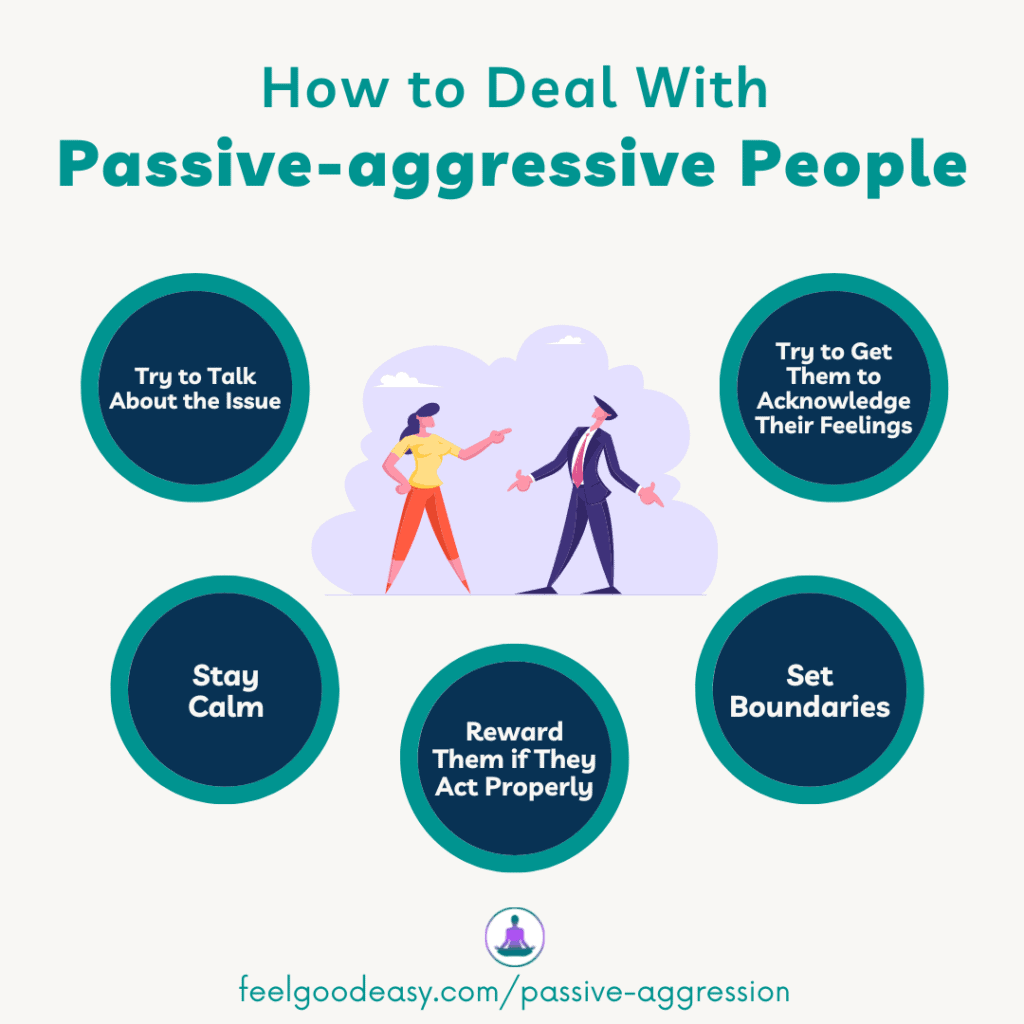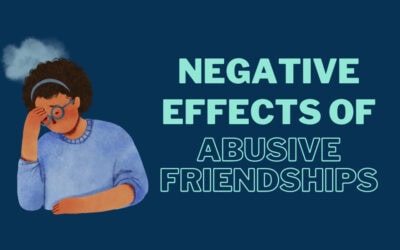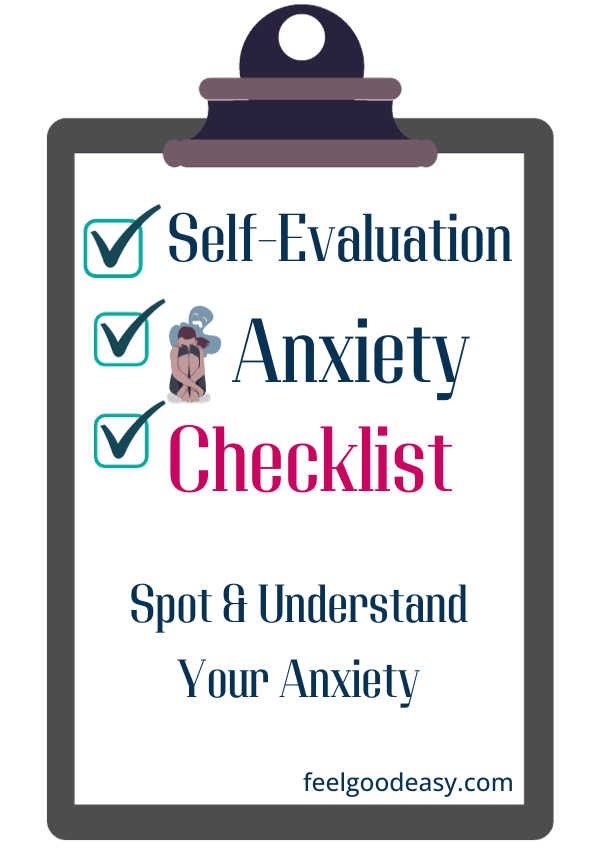Table of Contents
It could be extremely difficult to deal with a passive-aggressive person. In this article, we will try to shed light on the “how to deal with passive-aggressive people?” question.
Passive aggression is often viewed as a destructive type of behavior. Similar to other destructive forms of behavior, if things aren’t spoken about, and nothing is done to stop the behavior, things could grow worse.
This can lead to more negative behaviors, trust issues, and relationship problems.
What Is Passive-aggressive Behavior?

Passive-aggressive behavior is a type of behavior when a person is angry without expressing it. Passive-aggressive people rarely express hostility directly. Instead, they are trying to hurt or upset you, not in an obvious way.
Passive-aggressive people will deny that they are trying to hurt or upset you.
Why Do People Become Passive-aggressive?
Usually, people who can’t directly show their feelings and emotions become passive-aggressive. This is how they try to express their frustration.
Signs of Passive-aggressive Behavior
It is not always easy to identify passive-aggressive behavior. For example, someone will try to sabotage others quietly. Others will try to remain friendly but cavil at every word and try to make you look uneducated.
Passive-aggressive people can be sarcastic when the sarcasm is inappropriate. And when you try to confront them, they will pass their behavior as a joke.
Here are the signs of passive-aggressive behavior:
- Sarcastic responses and remarks
- Being overly critical
- Inaction as an action (letting a problem escalate without taking any steps to stop it)
- Silent treatment
- Acting cynical
How to Deal With Passive-aggressive People?

So what to do when the person says, “I’m not mad.” through clenched teeth. Or when someone is using sarcasm as a tool to make fun of what you or someone else said when it is inappropriate.
Try to Talk About the Issue
Passive-aggressive people act the way they act because they are afraid of your reaction. They think that you can start yelling at them, reject them and stop communicating with them. The best approach would be to start a conversation about the issue. You can say something like, “It looks like you are upset because of (some event). Do you want to talk about it?”
Try to Get Them to Acknowledge Their Feelings
In a non-confrontational, friendly way, try to let them know how their behavior makes you feel. For example, say something like, “When you speak this way, it makes me feel hurt.”
You can also say that you can see that something upset them, “It looks like something is bothering you.”
Do not try to mirror their behavior, be direct and honest. But be gentle and kind.
Stay Calm
Control your emotions and keep your voice neutral. It’s like an internet troll; the more you react to their passive-aggressive behavior, the more control they have over you. Don’t feed the troll.
Remember that you can’t control someone else’s behavior, but you can control yourself.
Reward Them if They Act Properly
Passive-aggressive people are just like everybody else. They find love, support, and approval. So when they do something right, do not try to make sarcastic remarks. Instead, give them the praise they want. Tell them that they did a good job and that you appreciate it.
Set Boundaries
It is important to set boundaries with a passive-aggressive person. People who are being targeted often have difficulties with being affirmative and assertive.
Setting boundaries is the way of saying that you are not going to pay the price for their behavior.
The Bottom Line
Passive-aggressive people could be difficult to deal with but remember that their behavior is caused by their inability to recognize their own emotions and properly express them. Passive-aggressive behavior is never about you or is your fault.
If you see they are angry or frustrated but claim they are “alright,” don’t accept their answer at face value. Ask questions, and try to allow them to explain their feelings to you. You can help passive-aggressive people express themselves and encourage them to be totally clear with you without sarcastic remarks or other hurtful comments.
Stay calm, set boundaries, show them a little empathy, talk about the issue, and stay friendly. This is how to deal with passive-aggressive people.










0 Comments